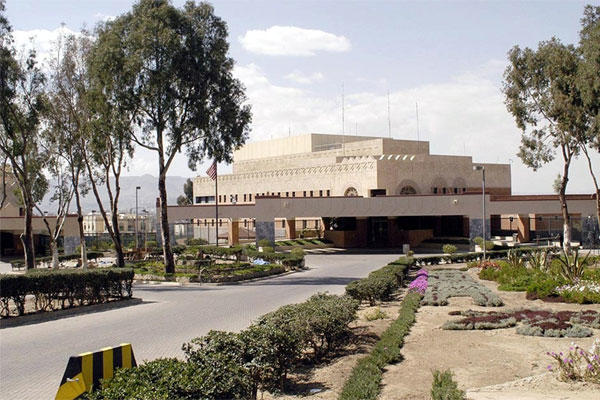U.S. Embassy Marines in Yemen handed over their M-9 pistols and M-4 carbines before evacuating the chaotic country with diplomatic personnel, the Pentagon said Wednesday.
The Marines also left behind several vehicles at the airport in the capital city of Sanaa before departing on a civilian flight, said Army Col. Steve Warren, a Pentagon spokesman.
Warren said the Marines destroyed their machine guns and other crew-served weapons before leaving the Embassy for the airport. He also said that it was unclear who now had custody of the weapons and vehicles that were surrendered.
A Marine spokesman could not immediately say whether the surrender of weapons by Embassy Marines in an evacuation was unprecedented.
The Marines "destroyed their crew served weapons. They left their personal weapons behind," Warren said, but he could not say whether the Houthi rebels who have taken over much of the country now had the weapons and vehicles left by the Marines.
Warren also could not say why a civilian charter flight was used rather than military aircraft for the evacuation. He suggested that the handover of weapons may have resulted from international rules barring weapons on a civilian flight.
The Embassy evacuation and the convoy to the airport was "orderly, uneventful and organized," Warren said. The evacuation took place amid what Western reporters in Sanaa described as relative calm in the city despite protests for and against the Houthis.
Warren declined to disclose the destination of the evacuation flight but said the Embassy Marines were remaining in the region. He also said that an undisclosed number U.S. Special Operations troops remained in Yemen for possible training of the crumbling Yemeni military and counter-terror missions.
The U.S., British and other embassies were closed and their personnel were evacuated as the Houthi rebels took over country at the southern end of the Red Sea. France urged all of its citizens to leave Yemen and said the French Embassy would close on Friday.
The central government in Yemen collapsed in January following the Houthi takeover of Sanaa. Yemen had been a U.S. ally in the fight against the Al Qaeda in the Arabian Peninsula (AQAP) terror group.
The Houthis are also enemies of AQAP but have publicly expressed opposition to U.S. drone strikes against AQAP. However, the Houthis have as yet made no moves to stop the drone strikes.
-- Richard Sisk can be reached at richard.sisk@military.com






























